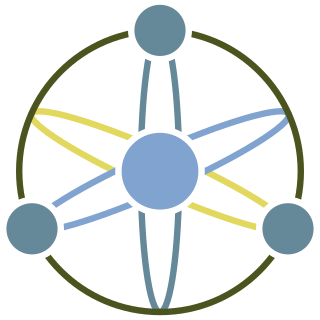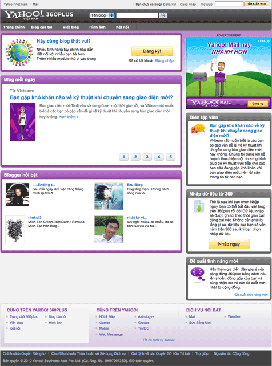
RSS is a web feed that allows users and applications to access updates to websites in a standardized, computer-readable format. Subscribing to RSS feeds can allow a user to keep track of many different websites in a single news aggregator, which constantly monitors sites for new content, removing the need for the user to manually check them. News aggregators can be built into a browser, installed on a desktop computer, or installed on a mobile device.

The name Atom applies to a pair of related Web standards. The Atom Syndication Format is an XML language used for web feeds, while the Atom Publishing Protocol is a simple HTTP-based protocol for creating and updating web resources.

On the World Wide Web, a web feed is a data format used for providing users with frequently updated content. Content distributors syndicate a web feed, thereby allowing users to subscribe a channel to it by adding the feed resource address to a news aggregator client. Users typically subscribe to a feed by manually entering the URL of a feed or clicking a link in a web browser or by dragging the link from the web browser to the aggregator, thus "RSS and Atom files provide news updates from a website in a simple form for your computer."

Delicious was a social bookmarking web service for storing, sharing, and discovering web bookmarks. The site was founded by Joshua Schachter and Peter Gadjokov in 2003 and acquired by Yahoo! in 2005. By the end of 2008, the service claimed more than 5.3 million users and 180 million unique bookmarked URLs. Yahoo sold Delicious to AVOS Systems in April 2011, and the site relaunched in a "back to beta" state on September 27 that year. In May 2014, AVOS sold the site to Science Inc. In January 2016 Delicious Media, a new alliance, reported it had assumed control of the service.

Liferea is a news aggregator for online news feeds and podcasts. It supports the major feed formats including RSS/RDF and Atom and can import and export subscription lists in OPML format. Liferea is intended to be a fast, easy to use, and easy to install news aggregator for GTK+ that can be used with the GNOME desktop. Liferea features a script manager, in which users can add custom scripts that run whenever a certain action occurs.

Yahoo! 360° was a social networking and personal communication portal operated by Yahoo! made available in 2005. It enabled users to create personal web sites, share photos from Yahoo! Photos, maintain blogs and lists, create and share a public profile and see which friends are currently online. 360° also featured a 'friends updates' section, under which each friend's latest update was summarized. This service was never officially launched; Yahoo! prematurely stopped developing this service in 2008.

In computing, a news aggregator, also termed a feed aggregator, content aggregator, feed reader, news reader, or simply an aggregator, is client software or a web application that aggregates digital content such as online newspapers, blogs, podcasts, and video blogs (vlogs) in one location for easy viewing. The updates distributed may include journal tables of contents, podcasts, videos, and news items.

Flock is a discontinued web browser that specialized in providing social networking and Web 2.0 facilities built into its user interface. Earlier versions of Flock used the Gecko HTML rendering engine by Mozilla. Version 2.6.2, released on January 27, 2011, was the last version based on Mozilla Firefox. Starting with version 3, Flock was based on Chromium and so used the WebKit rendering engine. Flock was available as a free download, and supported Microsoft Windows, Mac OS X and, at one time, Linux as well.

Google Reader is a discontinued RSS/Atom feed aggregator operated by Google. It was created in early 2005 by Google engineer Chris Wetherell and launched on October 7, 2005, through Google Labs. Google Reader grew in popularity to support a number of programs which used it as a platform for serving news and information to users. Google shut down Google Reader on July 1, 2013, citing declining use.
In blogging, a ping is an XML-RPC-based push mechanism by which a weblog notifies a server that its content has been updated. An XML-RPC signal is sent from the weblog to one or more Ping servers, as specified by originating weblog), to notify a list of their "Services" of new content on the weblog.
This is a list of blogging terms. Blogging, like any hobby, has developed something of a specialized vocabulary. The following is an attempt to explain a few of the more common phrases and words, including etymologies when not obvious.

Paul T. Buchheit is an American computer engineer and entrepreneur who created the email service Gmail. He developed the original prototype of Google AdSense as part of his work on Gmail. He also suggested Google's former company motto Don't be evil in a 2000 meeting on company values, after the motto was initially coined in 1999 by engineer Amit Patel.

My Yahoo! was a start page or web portal that combined personalized Yahoo! features, content feeds, and information. The site was launched in 1996 and was one of the company's most popular creations. It was discontinued in Dec. 2024.
Microblogging is a form of blogging using short posts without titles known as microposts. Microblogs "allow users to exchange small elements of content such as short sentences, individual images, or video links", which may be the major reason for their popularity. Some popular social networks such as X (Twitter), Threads, Tumblr, Mastodon, Bluesky and Instagram can be viewed as collections of microblogs.
Social network aggregation is the process of collecting content from multiple social network services into a unified presentation. Examples of social network aggregators include Hootsuite or FriendFeed, which may pull together information into a single location or help a user consolidate multiple social networking profiles into a single profile.
Google Friend Connect was a free social networking site, active from 2008 to 2012. Similar to Facebook Platform and MySpaceID, it allowed users to build a profile to share and update information through messaging, photographs and video content via third-party sites which acted as a host for profile sharing and social exchanges.
Ping.fm was an advertising-supported social networking and micro-blogging web service that enabled users to post to multiple social networks simultaneously.
GENWI is a privately held technology company based in San Jose, CA that provides a mobile content enablement platform. GENWI is short for "Generation Wireless".
Simple Update Protocol, or SUP, is a protocol developed by FriendFeed to simplify and speed up RSS and Atom feed updates. Updates from services that supported the protocol would appear on FriendFeed within seconds, until support was dropped. These sites include Disqus, Identi.ca, reddit.
Brizzly was a third-party Twitter and Facebook interface. It was unveiled at one of TechCrunch's events in 2009 and was acquired by AOL in 2010.







